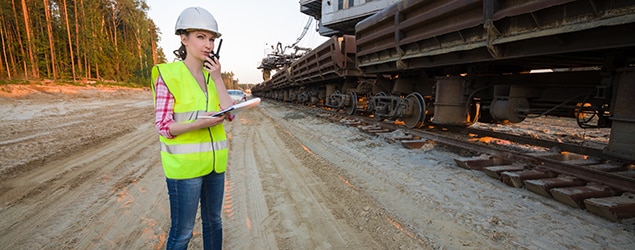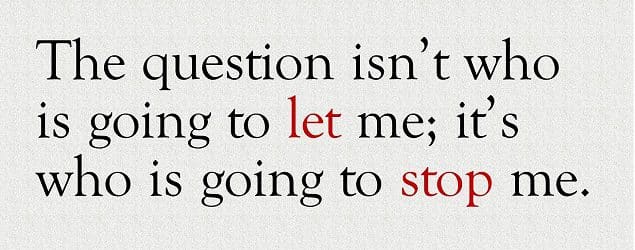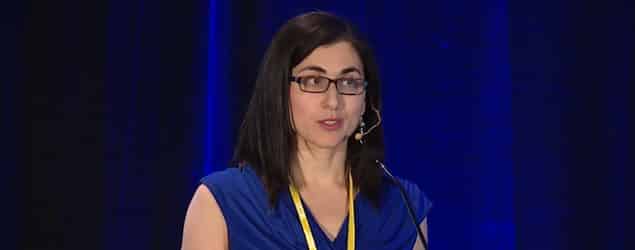Rachel Maddow Fails “Ayn Rand 101”

Rachel Maddow tries her hand at summing up Ayn Rand’s Atlas Shrugged:
In Ayn Rand’s novel, she leads her readers to see the wealthiest people as heroes, heroes that must be protected. . . . The rich are heroes and everybody else is a taker. The more the rich have, the better. The better for everyone. That is not fiscal conservatism either. It is something else.
This is, to put it bluntly, a totally inaccurate description of Atlas Shrugged and of Rand’s view. It is the left that divides up the world into “the rich” and “everybody else.” Rand doesn’t think in those terms.
Atlas, for instance, includes rich heroes (Hank Rearden, Francisco D’Anconia) and non-rich heroes (John Galt, Quentin Daniels), as well as rich villains (James Taggart, Orren Boyle) and non-rich villains (the Starnes heirs).
The real division in Atlas is not between rich and poor but productive and unproductive. Rand lionizes producers: anyone who works to the best of his ability to create material values. This includes men such as Hank Rearden, a steel magnate who creates a revolutionary new metal, and it also includes men such as Eddie Willers, a hardworking assistant to railroad executive Dagny Taggart.
Indeed, one my favorite minor characters in Atlas Shrugged is Pat Logan. Logan is not rich and he’s not a productive genius. He’s a blue-collar railroad engineer who conducts the first run of a train on Dagny Taggart’s newly-built John Galt Line. In one characteristic passage, Rand writes:
She [Dagny] sat in the fireman’s chair and glanced across at Logan once in a while. He sat slumped forward a little, relaxed, one hand resting lightly on the throttle as if by chance; but his eyes were fixed on the track ahead. He had the ease of an expert, so confident that it seemed casual, but it was the ease of a tremendous concentration, the concentration on one’s task that has the ruthlessness of an absolute.
Such men, Rand says, are not “takers.” While they do not produce as much wealth as innovative giants do (a low-level programmer doesn’t produce as much as Steve Jobs did), they do produce: they are “makers,” albeit on a modest level, and Rand gives them full moral credit accordingly. “It is not the degree of a man’s ability nor the scale of his work that is ethically relevant here,” she says in an essay, “but the fullest and most purposeful use of his mind.”
By contrast, Rand condemns anyone — regardless of how wealthy they are — who acquires wealth, not through production, but by draining those who do produce. Take Atlas Shrugged villain Orren Boyle. Boyle is a steel executive who grows rich, not by outcompeting men like Hank Rearden, but by getting subsidies and other special favors from the government.
Either Maddow has not read Ayn Rand — in which case she should not be reporting on the content of Rand’s works as if she had — or she has read Rand but utterly failed to understand her. Either way, she owes her viewers a correction and an apology.



